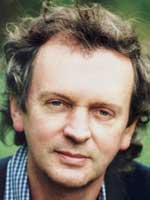

Archives of conferences
not regularly scheduled
Altered States
Business and
Consciousness
Enlightenment
|
 Rupert Sheldrake Rupert Sheldrake, PhDRupert is a biologist and the author of Presence of the Past: Morphic Resonance and the Habits of Nature, The Sense of Being Stared At and Other Aspects of the Extended Mind and many other books. He was Director of Studies in Cell Biology at Cambridge and was a Research Fellow of the Royal Society. Rupert Sheldrake's website: www.sheldrake.org Keynote: Memory and Morphic Resonance According to the hypothesis of formative causation, all self-organizing systems, including crystals, organisms and societies are organized by morphic fields containing an inherent memory, given by a process called morphic resonance from previous similar systems. Nature is not governed by fixed laws but by habits. By this process, all human beings draw upon a collective human memory, similar to Jung’s collective unconscious, and in turn contribute to it. Even individual memory depends on morphic resonance rather than on physical memory traces stored within the brain. This radical hypothesis has many implications for our understanding of human and animal nature. Goal: To explore the idea that memories in people, animals and nature depend on morphic resonance, rather than on physical memory traces. Learning objectives: Workshop: Fields of the Mind: Experimental Research and Practical Intuition Our minds seem to extend far beyond our brains. Recent experimental results show that people can influence others at a distance just by looking at them, even when all normal sensory clues are eliminated. The mind reaches out to touch the focus of its attention. Rupert suggests that this happens through mental fields. Such fields are also involved in the projection of intentions, which can be detected telepathically at a distance, as shown in experiments with dogs that know when their owners are coming home, and on people's ability to anticipate who is about to call. Telepathy seems to be normal, rather than paranormal, and is widespread in the animal kingdom. In this workshop, you will do simple experiments to explore how the fields of our minds extend beyond our bodies through attention and intention. Rupert will also discuss how individual and collective memory depend on a kind of resonance - morphic resonance - with the past, and show how our minds link us to events that have not yet happened. Intuition can be of great practical importance, and is rooted in our evolutionary history. Goal: To explore how our minds seem to extend beyond our brain. Learning objectives:
|
Publishing Division
|
Bizspirit, Visionary DVD Club, Visionary Audio and Video, Business Spirit Journal, Business Training Central
are ™ and © 2006, All Rights Reserved to The Message Company
 CEs Available: This conference is approved for CEs through the National Board of Certified Counselors.
CEs Available: This conference is approved for CEs through the National Board of Certified Counselors.

